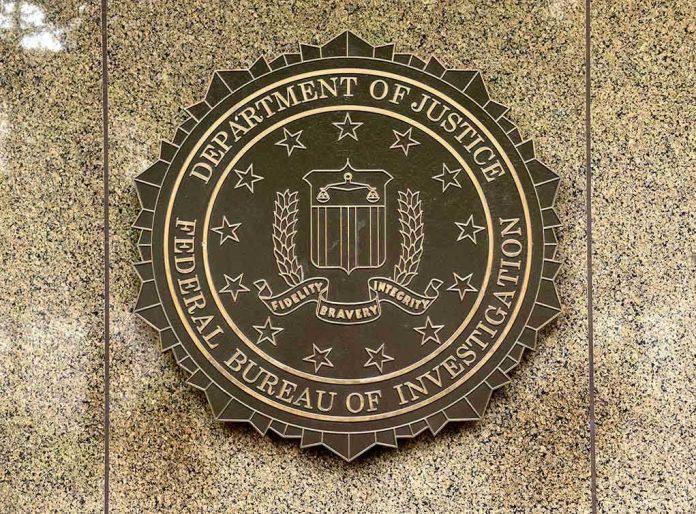
Brad Spafford’s guilty plea for stockpiling a record-breaking arsenal of 150 pipe bombs is a chilling reminder of the threats lurking in our own backyard.
At a Glance
- Brad Spafford pleads guilty to possession of unregistered firearms and explosives.
- 150 pipe bombs seized, marking the largest explosive cache in FBI history.
- Spafford expressed support for political violence, targeting politicians.
- Sentencing scheduled for December 2025, with up to 20 years in prison looming.
A Shocking Discovery
In December 2024, federal agents descended upon the home of Brad Spafford in Isle of Wight County, Virginia, uncovering what turned out to be the largest cache of explosives in FBI history. The 36-year-old had amassed 150 pipe bombs, along with other destructive devices, in a chilling plot that threatened public safety on a massive scale. His home was a veritable powder keg, with explosives stored in highly unsafe conditions, including a jar of volatile material chilling in his freezer right next to foodstuffs.
Spafford’s dangerous fascination with explosives was not a secret. A past accident in 2021 had already cost him three fingers—an ominous indication of his perilous hobby. Yet, it was his vocal support for political violence that truly raised alarms. The FBI began investigating him back in 2023 after an informant tipped them off to his stockpiling activities, which included using a photo of President Joe Biden for target practice and making threats against politicians.
The Courtroom Drama
On July 19, 2025, Spafford stood in federal court, pleading guilty to the possession of an unregistered short-barrel rifle and destructive devices. His admission of guilt now sees him facing a potential 20-year prison sentence, with each count carrying a maximum of 10 years. Prosecutors wasted no time in highlighting the unprecedented scale of the seizure and the inherent risks posed by Spafford’s actions and rhetoric.
In the courtroom, Spafford’s defense team argued for his release, pointing to his steady employment and lack of a previous criminal record. But the judge, prioritizing public safety, deemed him an “extreme danger” and ordered his continued detention. Spafford’s guilty plea marks a critical juncture in a case that illustrates the very real threat posed by domestic extremism and the ease with which dangerous individuals can amass lethal arsenals.
The Broader Implications
This case is not just a cautionary tale about one man’s descent into extremism. It raises serious questions about our national security and the measures in place to prevent such threats. Spafford’s actions occurred against a backdrop of heightened political tension in the U.S., following an attempted assassination on former President Trump. His case serves as a stark reminder of the volatile climate we find ourselves in.
The implications extend far beyond Spafford and his family. The Isle of Wight community, potentially endangered by his stockpile, now faces the aftermath of this chilling discovery. Law enforcement agencies, tasked with preventing such threats, are prompted to reevaluate their strategies in monitoring and curbing domestic extremism. The case undoubtedly sets a precedent for how authorities will handle similar threats in the future, spotlighting the urgent need for robust measures against those who threaten the safety and security of our nation.




